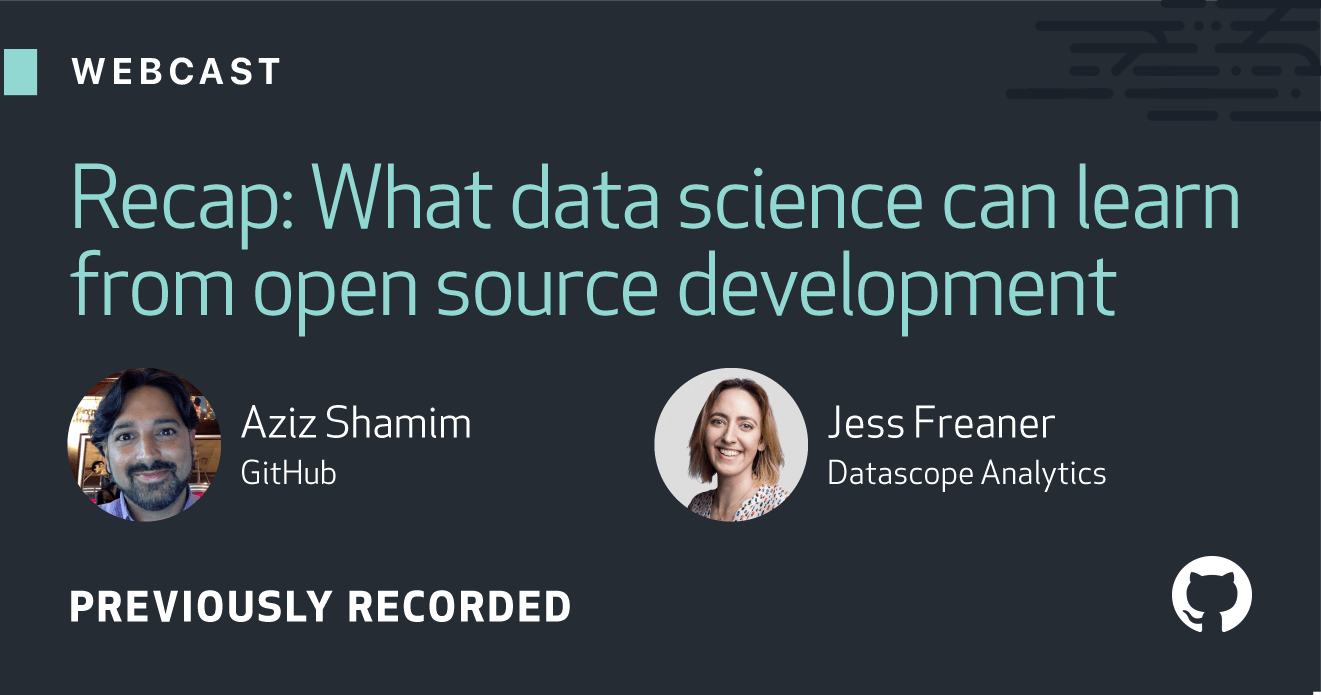Webcast recap: What data science can learn from open source development
Last week, Solutions Engineering Manager Aziz Shamim sat down with Datascope Analytics’ Jess Freaner to talk about how data scientists are uniquely positioned to adopt best practices from both science…

Last week, Solutions Engineering Manager Aziz Shamim sat down with Datascope Analytics’ Jess Freaner to talk about how data scientists are uniquely positioned to adopt best practices from both science and software—and how her team is using open source practices to enhance collaboration and results. In case you missed it, here’s a recording of the webcast, along with a few of our takeaways.
Highlights
Transparency and openness are essential to Datascope’s success.
Feedback and collaborative knowledge-sharing are hallmarks of successful open source projects. Similarly, transparency and constant communication with clients is key to the success in data science according to Jess. Other practices that cross over from open source include frequent check-ins and reviews, shared documentation, and “reference code” that keeps the Datascope Team and clients on the same page.
Data scientists can benefit directly from open source.
At Datascope, teams contribute regularly to open source projects. They also maintain and develop projects of the own, including Textract, a library that extracts text from difficult documents to work with, such as PDFs, and traces, “a library for dealing with unevenly spaced time series that’s quite handy when efficiently working with sensor data.” Building on the knowledge shared by industry peers, Datascope can move their open projects beyond what could they could have accomplished in a vacuum.
Data scientists can start using open source practices today.
Jess and Aziz also shared four key areas of focus for teams wanting to get started with open source. In short, open source can help teams be more iterative, modular, hypothesis-driven, and human-centered. Integrating these concepts into your data science practice can help your team solve problems in a more holistic, collaborative, and agile way.
Hear more from Jess and Aziz in the recording or browse other GitHub resources.
Written by
Related posts

GitHub availability report: January 2026
In January, we experienced two incidents that resulted in degraded performance across GitHub services.

Pick your agent: Use Claude and Codex on Agent HQ
Claude by Anthropic and OpenAI Codex are now available in public preview on GitHub and VS Code with a Copilot Pro+ or Copilot Enterprise subscription. Here’s what you need to know and how to get started today.

What the fastest-growing tools reveal about how software is being built
What languages are growing fastest, and why? What about the projects that people are interested in the most? Where are new developers cutting their teeth? Let’s take a look at Octoverse data to find out.